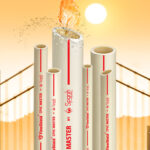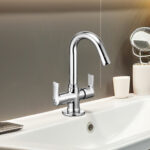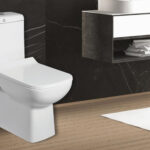In the world of plumbing, the choice of pipes and fittings is crucial for ensuring the efficiency and longevity of the plumbing system. CPVC (Chlorinated Polyvinyl Chloride), UPVC (Unplasticized Polyvinyl Chloride), and SWR (Soil, Waste, and Rainwater) pipes and fittings have gained prominence for their unique set of advantages. In this blog post, we will explore the benefits of CPVC, UPVC, and SWR pipes and fittings, shedding light on why these materials stand out and identifying the ideal audience for each.
CPVC Pipes and Fittings:
a. Thermal Resistance:
CPVC pipes are known for their exceptional thermal resistance, making them an excellent choice for hot water applications. The chlorination process enhances their ability to withstand higher temperatures compared to traditional PVC pipes. Homeowners seeking a reliable and durable solution for hot water plumbing should consider CPVC pipes and fittings.
b. Corrosion Resistance:
CPVC is inherently resistant to corrosion and chemical reactions. This property ensures that CPVC pipes maintain their integrity over time, even in environments with aggressive water conditions. This makes CPVC a preferred choice for residential and commercial plumbing systems, especially in areas where water quality may pose a risk to traditional metal pipes.


c. Easy Installation:
CPVC pipes are lightweight and easy to handle, facilitating a simpler installation process. Their ability to connect seamlessly with solvent cement ensures leak-free joints, reducing the likelihood of maintenance issues down the line. This makes CPVC pipes an ideal choice for homeowners looking for a hassle-free and efficient plumbing installation.
d. Versatility:
CPVC pipes are versatile and can be used for both hot and cold water applications. Their compatibility with various plumbing systems makes them suitable for a broad range of residential and commercial projects. Whether it’s for residential plumbing, industrial applications, or even sprinkler systems, CPVC pipes provide a versatile solution.
UPVC Pipes and Fittings:
a. Chemical Resistance:
UPVC pipes exhibit excellent chemical resistance, making them suitable for a variety of applications, including water supply, drainage, and irrigation. The material is inert to most chemicals found in water, ensuring the longevity and reliability of the plumbing system. This feature is particularly advantageous in industrial settings and areas with varying water compositions.
b. Durability and Longevity:
UPVC pipes are known for their durability and long lifespan. The material does not corrode, rust, or degrade over time, contributing to a low-maintenance plumbing system. Homeowners and builders looking for a reliable and robust solution for water supply and drainage should consider UPVC pipes for their projects.
c. Cost-Effectiveness:
UPVC pipes offer a cost-effective alternative to traditional metal pipes. The material is more affordable, both in terms of initial investment and long-term maintenance. This makes UPVC pipes an attractive option for budget-conscious homeowners and builders without compromising on performance.
d. Lightweight Construction:
UPVC pipes are lightweight, making them easy to transport and handle during installation. This characteristic simplifies the installation process, reducing labor costs and making UPVC pipes a practical choice for construction projects with tight timelines.
SWR Pipes and Fittings:
a. Efficient Drainage:
SWR pipes and fittings are specifically designed for Soil, Waste, and Rainwater drainage systems. The smooth inner surface of these pipes ensures efficient water flow and minimizes the risk of blockages. Homeowners and builders focused on creating effective drainage solutions for residential, commercial, or industrial projects should consider SWR pipes.
b. Corrosion and Rust Resistance:
SWR pipes, typically made of UPVC material, benefit from its corrosion-resistant properties. This ensures that the drainage system remains free from corrosion and rust, even when dealing with wastewater and rainwater. The longevity of SWR pipes contributes to the overall sustainability of the plumbing infrastructure.
c. Weather Resistance:
SWR pipes are designed to withstand outdoor conditions, making them suitable for rainwater drainage systems. The material’s resistance to weathering ensures that the pipes and fittings remain durable and reliable over time, even when exposed to the elements. This makes SWR pipes an essential component for projects where efficient rainwater drainage is a priority.
d. Easy Installation and Low Maintenance:
SWR pipes and fittings are designed for easy installation, with joints that ensure a secure and leak-free system. The low-maintenance nature of SWR systems makes them an ideal choice for both residential and commercial projects, reducing the need for frequent repairs and upkeep.
In conclusion, CPVC, UPVC, and SWR pipes and fittings each bring a unique set of advantages to the table. CPVC is the go-to choice for hot water applications, UPVC stands out for its chemical resistance and cost-effectiveness, while SWR pipes are essential for efficient drainage systems. Homeowners, builders, and plumbers should carefully consider the specific requirements of their projects to determine which material suits their needs best. The versatility, durability, and specialized features of CPVC, UPVC, and SWR pipes and fittings make them indispensable components in modern plumbing systems.






